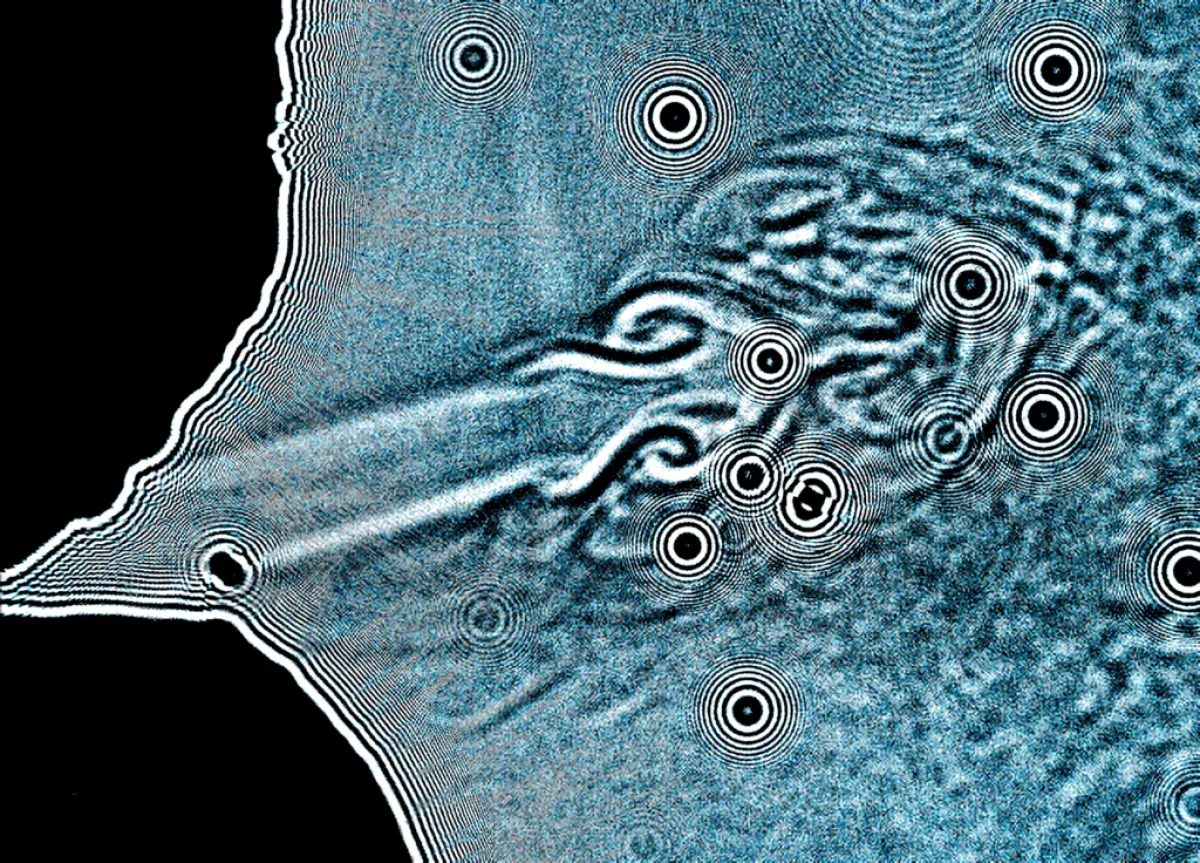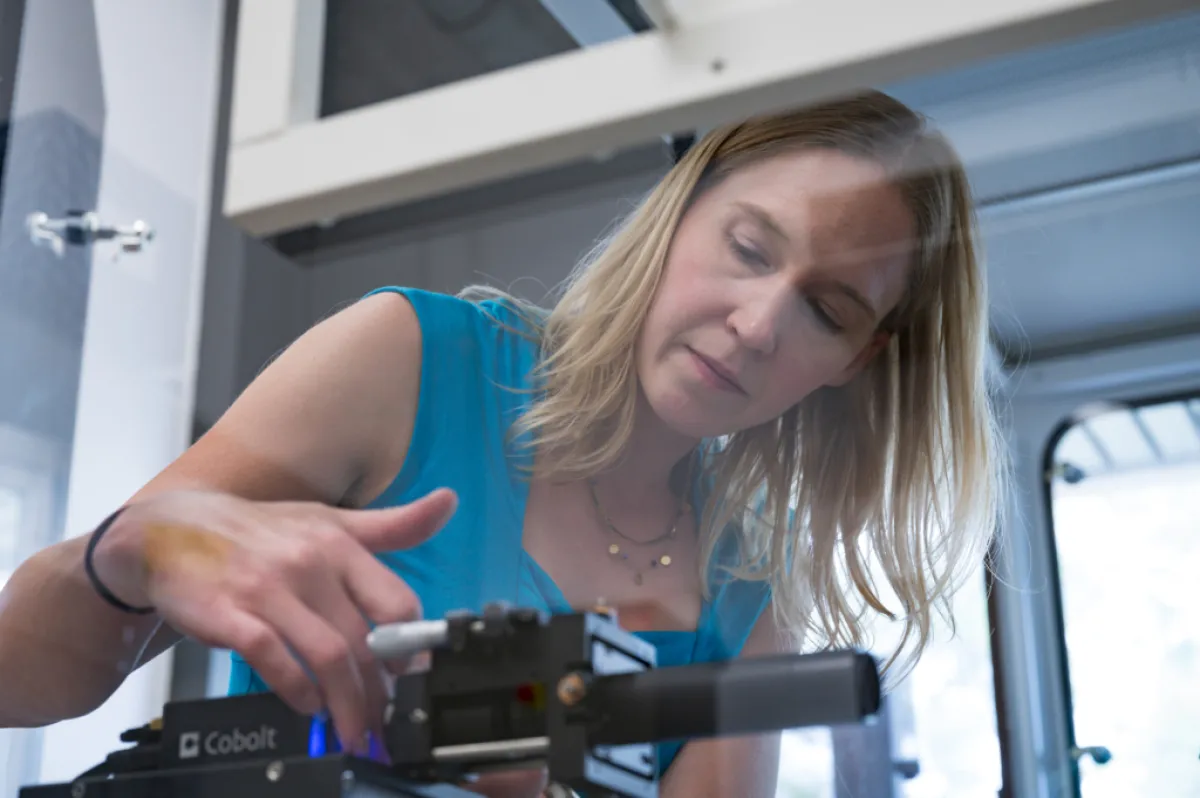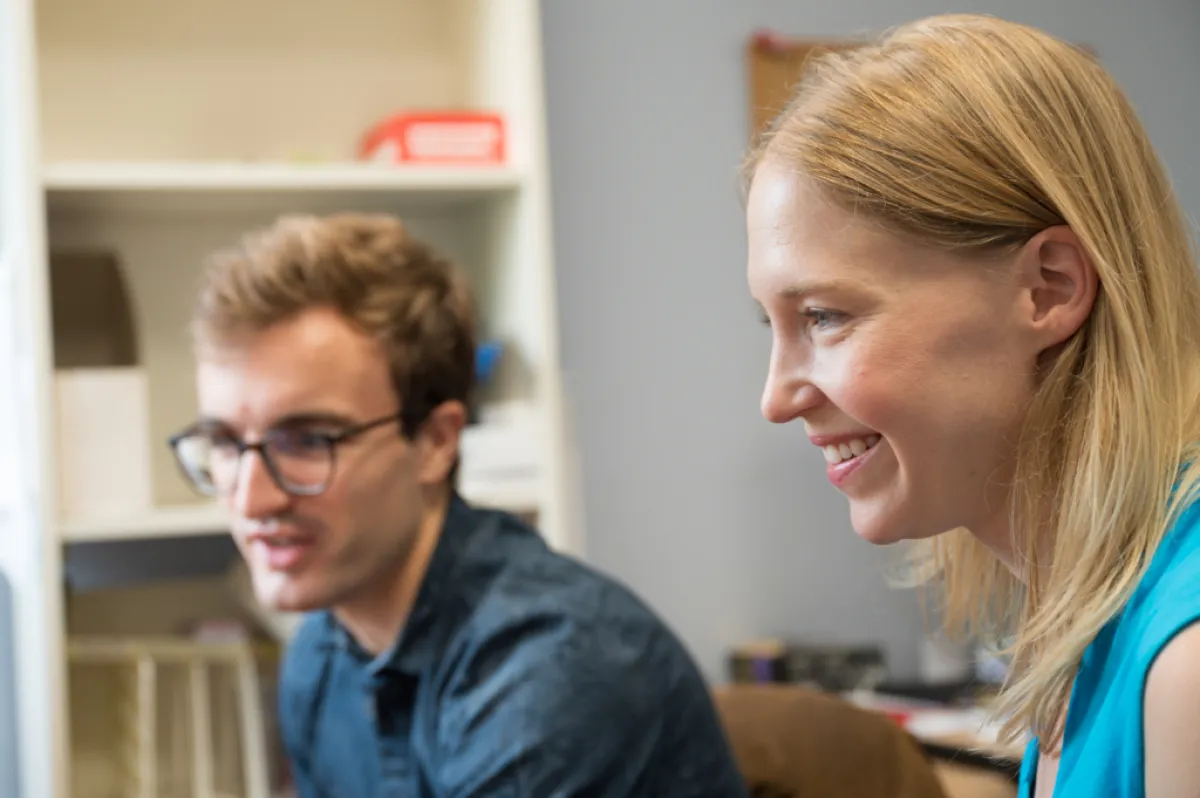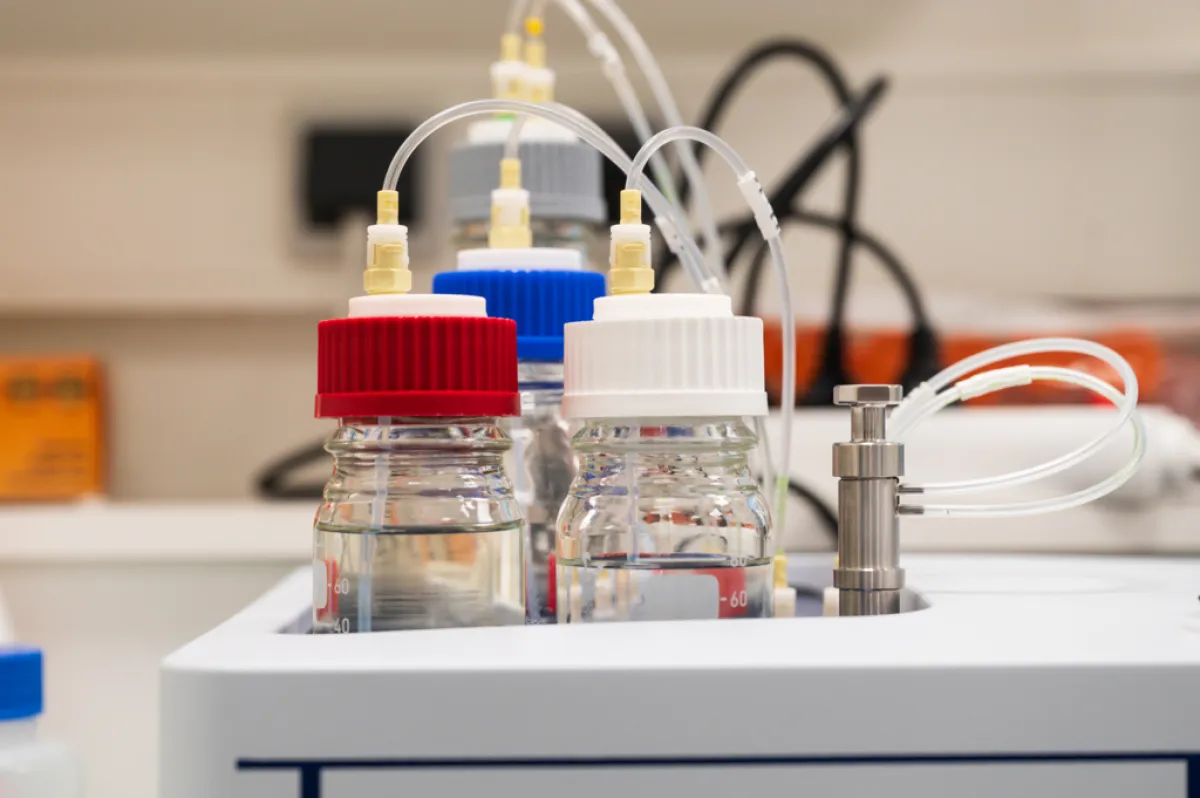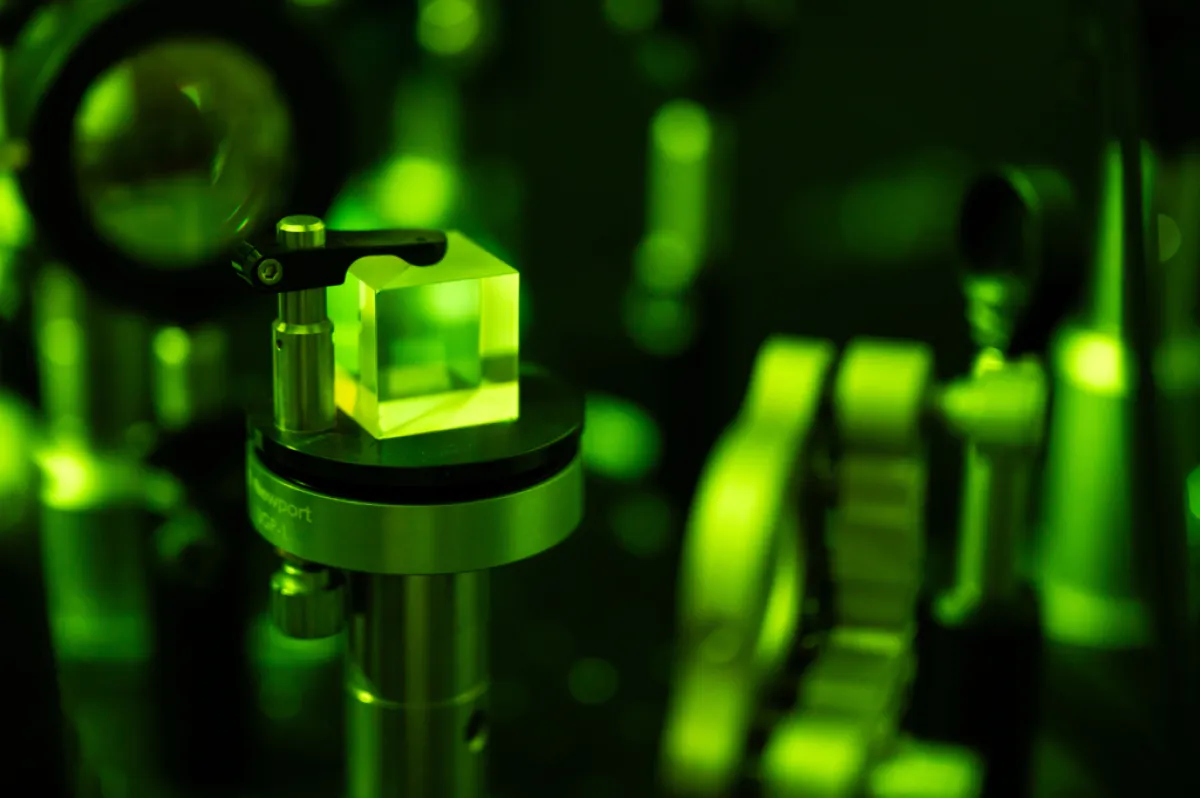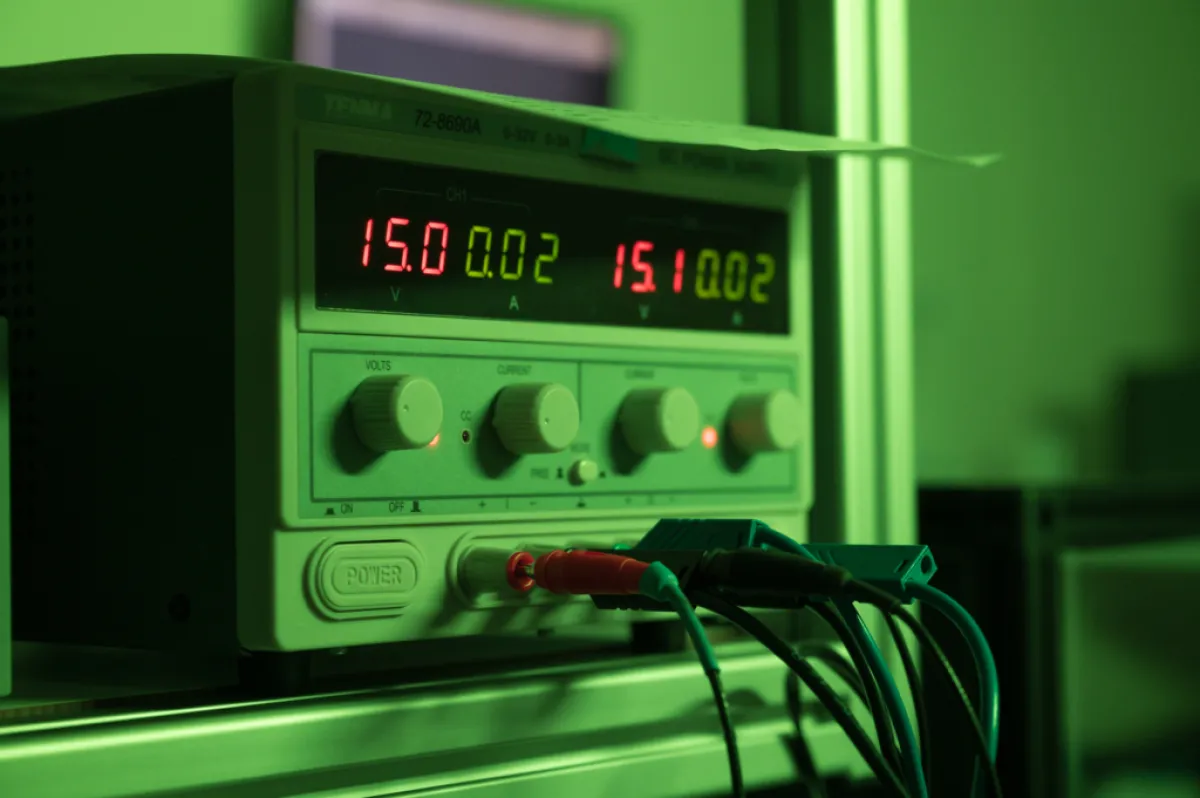Ashley Nord Resisting antibiotics: bacteria are making films!
Ashley Nord, CNRS researcher, Researcher in the "Physics and Mechanics of Biological Systems" team at the Centre de Biologie Structurale, Montpellier
- 2023 • Impulscience
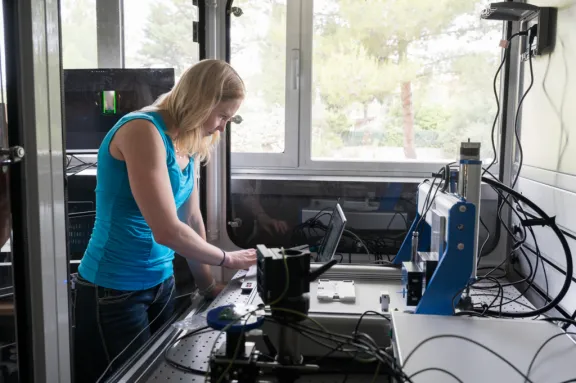
Most bacteria on Earth aggregate with one another in communities called biofilms, which play a key role in many global challenges, from antibiotic resistance to food and water safety. Ashley Nord studies the formation of biofilms through the lens of physics to radically change everything we've known about them until now.
Biofilms offer bacteria a good life
Most of our knowledge about bacteria comes from the study of independent, mobile cells. Yet the majority of bacteria on Earth are found in non-mobile aggregated communities called biofilms, which bear little resemblance to mobile bacteria. Biofilms protect bacteria from hostile environments, such as host immune responses, mechanical forces and antimicrobial agents. Surprisingly, cells in a biofilm can be up to 1,000 times more resistant to antibiotics than individual cells. Biofilms are a major medical challenge: They cause 80% of infections, and they are very difficult to eradicate.
A fresh look at biofilm formation
Current knowledge suggests that biofilms form when a mobile cell senses and adheres to a surface, triggering a change in the bacterium’s "lifestyle". But this crucial stage, called nucleation, remains poorly understood. Why and when does the first cell stick to the surface? Does the cell plan to do this, or does it just happen by chance? What mechanical or chemical signals are responsible for surface detection and induced changes? Ashley Nord plans to observe the phenomenon by using unique, high-resolution approaches able to detect individual cell responses.
Strength in numbers
Funded by Impulscience®, the project aims to discover in what order, to what degree and under what circumstances cellular signals (intracellular pH, membrane potential, metabolic activity) trigger the attachment of a mobile bacterium to a surface. However, many biofilms, including those that cause chronic infections, form in the absence of a surface, suggesting that they could take different routes to nucleation.
Ashley Nord wants to know to what extent nucleation might ultimately result from the emerging behaviour of a group of bacteria rather than the reaction of an individual. This concept is particularly relevant to the transmission of bacteria in aerosols, when we cough, sneeze or even speak, for example. If aerosol formation triggers biofilm nucleation and protects the bacteria within, could biofilms play an important role in disease transmission? As well as adding a smidgeon of physics to our knowledge of biofilm formation, this project will reveal the role biofilms play in the survival of bacteria in aerosols.
Ashley Nord in a few words
Ashley studied physics in the United States. During her PhD at Oxford University (United Kingdom), she generated new tools to study the motion of molecular motors such as the flagellum, which allows some bacteria to move. During her post doctorate at the Centre de Biologie Structurale in Montpellier, which she started in 2014, she developed methods for analysing molecular motors and became interested in the mechanisms allowing bacteria to adapt to their environment. In 2018, she set up her own team within the same research centre. Since then, she has opened up new avenues of research, including a study funded by the Fondation Bettencourt Schueller that aims to change our understanding of the fundamental principles of bacterial biofilm formation.
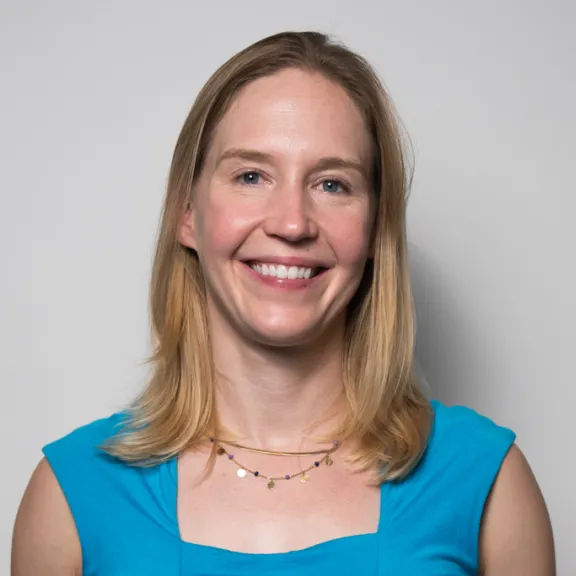
Impulscience
Impulscience allocates 7 new grants each year to researchers in the life sciences. Focused on the mid-career, this program aims to support this crucial stage for the development of research projects.
All the award-winners